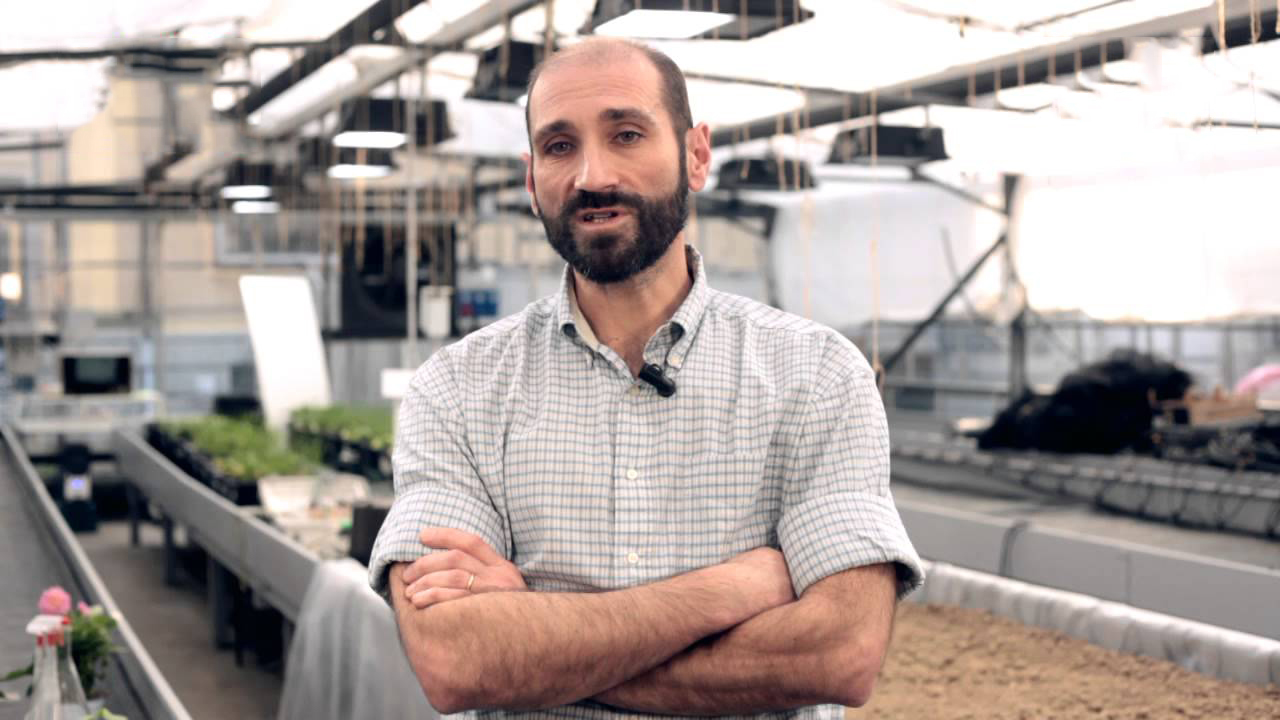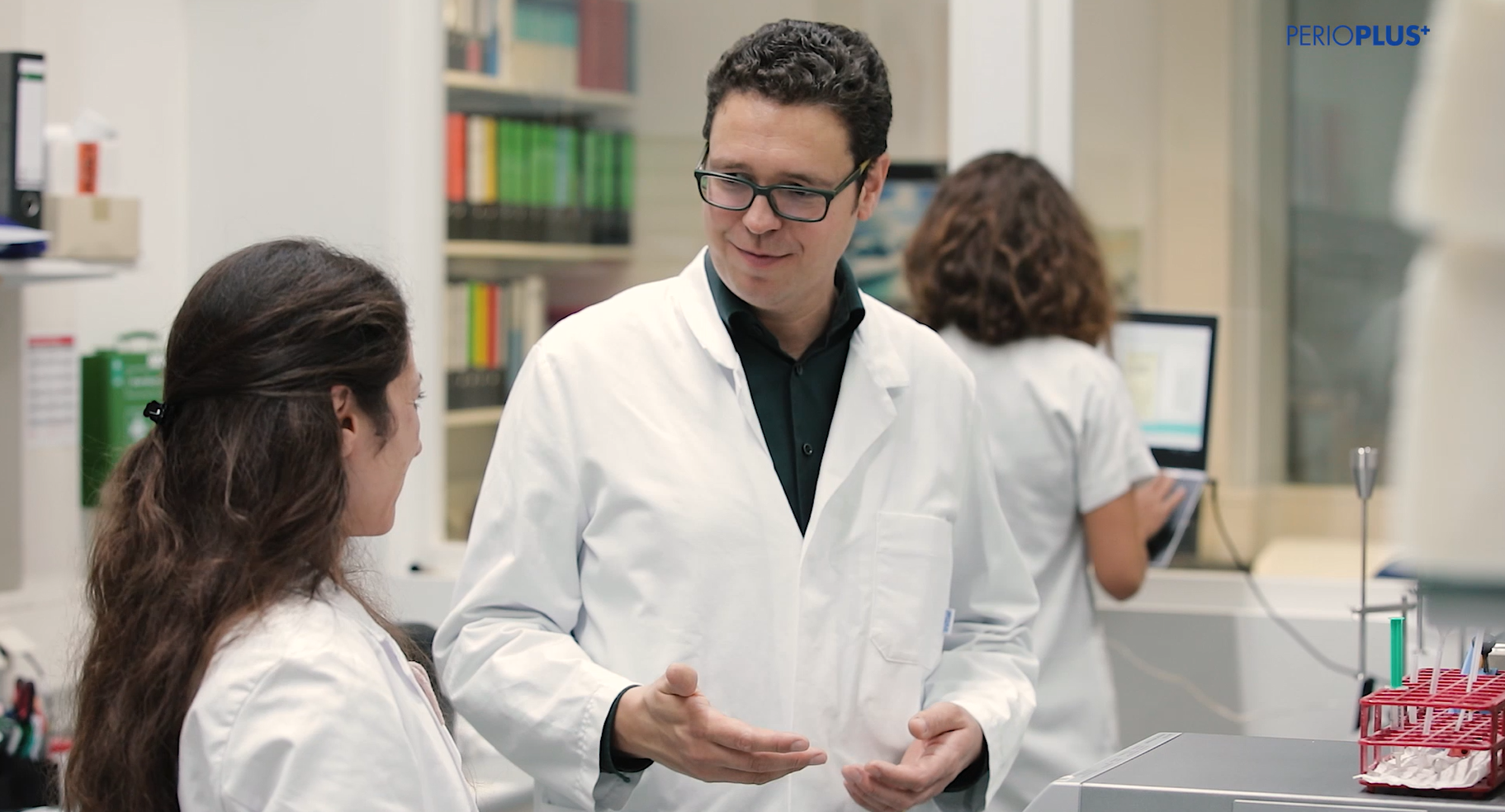“The world of plants is fascinating,” Prof. Marcello Iriti says, in starting off the interview. “Since the beginning of humanity, plants have represented, and still represent, an unlimited source of food and medication. Studying plants is equally fascinating and stimulating,” he adds. A life scientist at the Faculty of Agricultural and Food Science of Milan State University in Italy, Iriti mainly researches medicinal and food plants, with an emphasis on their biological activities. The health benefits of such plant compounds are only just beginning to be realised, and it appears that our diet—and the Mediterranean diet in particular—may harbour some secrets in this regard.
I would like to talk about the link between the prevention of disease and nutrition. It seems that polyphenols are key here. Can you explain what they are?
First of all, polyphenols are exclusively produced by plants, so plants and plant-based foods are naturally rich in these secondary metabolites. Polyphenols are a group of phytochemicals, which are part of the plant’s innate immune system involved in defence against infections, insect attacks and abiotic stresses—such as ultraviolet radiation, environmental pollutants and weather conditions. Consequently, the polyphenol levels in plants can vary depending on the harvest year, and post-harvest conditions too can further modify the polyphenol levels in plant foods.
In recent decades, diets rich in plant foods have been increasingly associated with longevity and healthy ageing. Dietary patterns involving plenty of fruit, vegetables and legumes have been associated with reduced risk and incidence of chronic degenerative diseases, such as Type 2 diabetes, metabolic syndrome, cardiovascular disease, neurodegenerative disorders, certain types of cancers and periodontal disease.
Is it true that the Mediterranean diet, in particular, is a typical example of such a diet?
The Mediterranean diet can be considered the archetype of a health-promoting diet in this regard. This is due to high intake of low-fat dairy products and healthy lipids—mainly from seafood—as well as low consumption of refined sugars, red meat and saturated fats. The beneficial effects of diets rich in plant foods—such as the Mediterranean one—can be ascribed, at least in part, to the huge phytochemical diversity of plant foods. Food plants typically contain hundreds of bioactive phytochemicals, including polyphenols. Probably, polyphenols, a class of widespread phenylalanine derivatives, including flavonoids, stilbenes and proanthocyanidins, have been the most investigated dietary phytochemicals in recent decades and represent a paradigm of the relationship between food and health.
What are some examples of food sources rich in polyphenols?
All plant-derived foods and beverages are significant sources of polyphenols, including fruit, vegetables, pulses, coffee, tea, cocoa and red wine. As I previously said, these metabolites arise from phenylalanine, an aromatic amino acid produced exclusively by plants. This implies that meat does not contain polyphenols, even though it is essential for a well-balanced diet.
“Dietary patterns involving plenty of fruit, vegetables and legumes have been associated with reduced risk and incidence of chronic degenerative diseases.”
You described polyphenols as bioactive components. What does that mean for our health?
Dietary polyphenols possess a number of well-demonstrated biological activities, since they are powerful in vitro antioxidant, anti-inflammatory, vaso-dilating, anti-thrombotic, antimicrobial and anti-cancer agents. This means that they can play a role in the prevention of cardiovascular disease, neurodegenerative disorders and certain types of cancers. Indeed, oxidative stress and inflammation are mechanistically involved in the aetio-pathogenesis of the main chronic degenerative diseases, including some oral diseases, such as periodontitis.

You were the first researcher to touch upon the role plant compounds could play in periodontal regeneration.
The ultimate goal of periodontal treatment is to achieve periodontal soft- and hard-tissue regeneration. In this regard, polyphenols can be considered as bone tissue protectants, suppressing osteoclast differentiation and activation, impairing bone resorption and improving bone anabolism–osteoblast activity and bone matrix synthesis.
“Antibiotic resistance is one of the biggest threats to global health, as is anti-cancer drug resistance. In this scenario, polyphenols could be promising natural antibiotics”
Polyphenols are strong antioxidants and are present in red wine. Is there any hope for wine lovers that red wine could benefit oral health?
Red wine is an alcoholic beverage, and obviously, I advise against using it to cure oral disease. Some years ago, we suggested that melatonin, another compound significantly present in some typical Mediterranean foods and beverages as well as, more generally, in many plant foods, could explain, at least in part, the health-promoting effects of the Mediterranean diet by acting in synergy or additively with polyphenols and other bioactive phytochemicals, such as carotenoids and glucosinolates.
Remarkably, melatonin is a powerful antioxidant and anti-inflammatory agent promoting bone metabolism in the oral cavity. Therefore, a certain degree of synergy between melatonin and polyphenols has been hypothesised. However, the melatonin and polyphenols we get from our diet are far from effective in the oral cavity, because they should be administered as topical formulations to reach pharmacologically active concentrations in saliva and oral tissue and also bypass the Phase I and Phase II metabolic transformation by our digestive system. Low oral bioavailability represents the major drawback of dietary phytochemicals.
Nonetheless, morbidity and mortality due to cardiovascular disease are low in Mediterranean countries, and epidemiological data indicates that adherence to a Mediterranean diet and polyphenol intake are cardioprotective factors. As vaso-dilating, anti-thrombotic and antioxidant agents, polyphenols can mitigate endothelial dysfunction, reduce low-density lipoprotein oxidation and prevent atherosclerosis. Regular low to moderate red wine consumption at main meals has shown to be cardioprotective.

Are there examples of organic plant compounds that have already become commonplace in the treatment of disease?
A plethora of dietary supplements based on botanicals and nutraceuticals have been developed. However, these products are not drugs and care should be taken not to try to cure major diseases with dietary supplements. With regard to oral health, aloe vera gel and Melaleuca alternifolia (tea-tree) essential oil have proven to be effective as antimicrobial and wound-healing agents.
Antibiotic resistance is becoming an increasingly common problem. Do you think a transition towards more organically sourced polyphenols in oral care products could offer a solution here?
This is a very relevant topic. Antibiotic resistance is one of the biggest threats to global health, as is anti-cancer drug resistance. In this scenario, polyphenols could be promising natural antibiotics. Indeed, plant extracts rich in polyphenols can be active on different bacterial and fungal targets, thus reducing the risk of selecting resistant microbial populations. In addition, polyphenols can reverse chemoresistance by targeting some microbial resistance mechanisms. In this regard, polyphenols could be used as adjuvants in combination with conventional antibiotics with the goal of slowing down the occurrence of resistance.
Lastly, has your research changed the way you eat and live?
Yes, of course, even though I was already “Mediterranean” before becoming a researcher. I am Italian and come from a southern region where traditional Mediterranean dishes are part of everyday life. The Mediterranean diet is one piece of the puzzle, but the Mediterranean lifestyle also includes sociocultural aspects relevant in terms of well-being, such as low- to moderate-intensity physical activity and of course conviviality.







